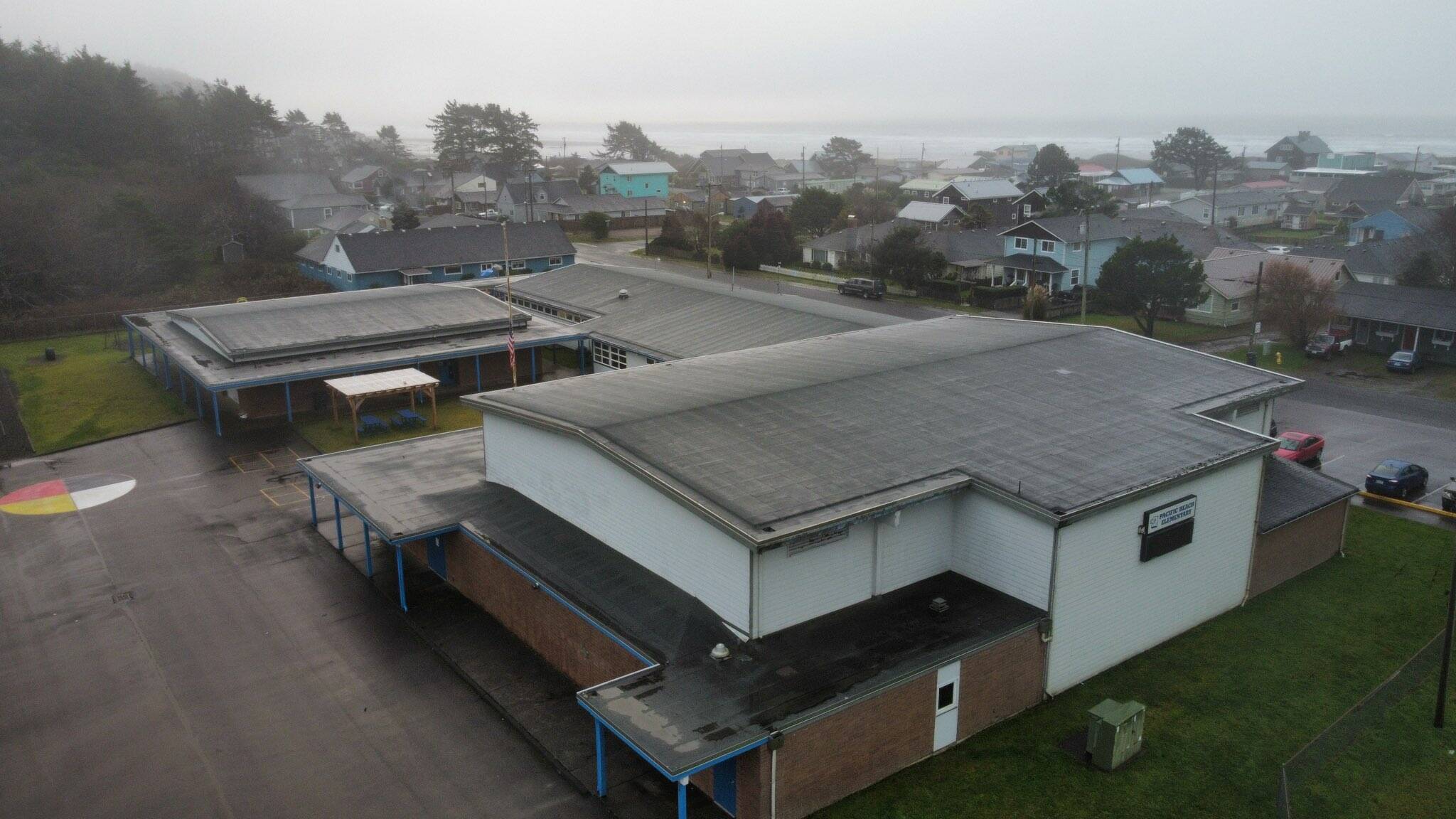Voters will soon weigh in on a multimillion-dollar bond measure aimed at making some North Beach schools safer for students, teachers and the community.
Mail-in ballots will arrive at homes in the North Beach School District mid-January regarding new levy and bond measures.
Proposal 1 is a 25-year, $110 million bond measure that will help fund the rebuilding of Pacific Beach Elementary (PBE) and improvements to North Beach Middle/High School and Ocean Shores Elementary (OSE).
PBE was built in 1956, before seismic construction codes, in close proximity to the water of Pacific Beach. A June report from the Washington State Department of Natural Resources to the Washington Legislature identified all three wings of PBE as “very high priority” for seismic retrofits.
With an estimated tax rate of $1.75 per $1,000 of property valuation, the new bond measure would allow the district to acquire land and construct a seismic-safe building on higher ground, out of tsunami flood zones. The bond would also fund the development of tsunami-safe refuges at each school for students, staff and surrounding community members.
While OSE is the district’s newest building and remains in excellent structural condition, the bond presents an opportunity to make the building tsunami-ready while alleviating growing classroom overcrowding. If Proposal 1 is approved, the district will build a two-story classroom addition that will create eight new classroom spaces and a multi-use space/tsunami refuge for 400-500 community members.
“The tsunami refuge would also be dual use space, essentially creating an additional multi-function room that could be used during the school day for educational reasons and out of school hours by the community. Should a tsunami occur outside the school day, the space would be fully available to the community for emergency access,” said North Beach School District Superintendent Andrew Kelly.
A period of growth across the district, exacerbated by COVID-19 related relocation, has strained the district’s resources in terms of classroom space and instruction.
At North Beach Middle and Senior High School, the HVAC system hasn’t been fully operational in over a decade. According to Kelly, the age of the system prevents adequately repairing the system, forcing the district to either “limp along” with the current system or do a full replacement.
Spending the district’s money responsibly remains a top priority for administrators, and the “long range facilities committee” is currently in the process of applying for $700,000 in need based rural improvement grants through OSPI as well as a FEMA grant to assist with the issues outlined in the bond.
“We’ve reached the point when being ‘responsible’ means spending money judiciously to protect our taxpayers’ investment in local schools,” said Kelly in a Dec. 7 press release.
Proposal 2 will renew the Educational Programs and Operations (EPO) levy, which has been regularly approved by North Beach residents. The annual total levy collection of $1,986,705 makes up 14 percent of the total district budget and supports educational necessities that state funding does not cover, such as salaries and benefits of additional staff. While these positions are identified as “enrichment” by the state, they allow the district to lower class size and facilitates one on one learning.
North Beach residents have traditionally paid $1.35 per thousand of assessed value to support the EPO levy. This year, the district is instead requesting approval of up to $1.06 per $1,000 valuation of property, 29 cents per thousand lower than in previous years.
“By timing this bond measure at this time, while property values are still rising and interest rates remain low, the district is in an excellent position to make long-term capital investments in schools without placing an undue burden on taxpayers,” said the press release.
With the passage of both measures, the total school tax rate for homeowners in the North Beach School District will be $2.56 per $1,000 of property valuation. Homeowners in the North Beach School District traditionally enjoy relatively low school tax rates compared to other districts in the county. Residents of Aberdeen, for example, pay $4.46 per $1,000 of valuation. Residents of Hoquiam pay $4.19.
“The quality of communities is largely measured by their schools, which affects the value of our homes. For many of us, our homes are our biggest asset. By taking care of our schools, we’re ensuring the investment in our homes is protected,” said Kelly.



